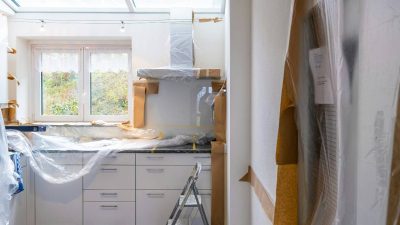Mystery messages found on walls, frames or floorboards of old houses are intriguing to find and provide interesting information about the personal lives and values of people from centuries ago.
New owners of a French Chateau were startled to find out the deepest secrets of their local villagers in the late 19th century, written on their very own floorboards.
When replacing the flooring of their newly purchased mansion, they found the underside of the parquet had been used as a secret diary over several months, dating between 1880 and 1881.
Stories of certain villagers written on the wood
The carpenter, Joachim Martin, who had laid the flooring for the Chateau’s owner at that time, had written the secret notes knowing that they would not be discovered until a long time after his own demise. He revealed shocking facts about local people, including his friend, his father and even the village’s priest.
He referred to an old childhood friend whose immoral actions appalled him and he wrote of an incident that had happened twelve years prior which still perturbed him.
“In 1868 I was passing at midnight before the doorway of a stable. I heard groans. It was the mistress of one of my old friends and she was giving birth.”
Joachim touched on the subject of infanticide, disclosing that his friend’s mistress had given birth to six children, and that four of them had been killed by his friend and were buried in the stable. The carpenter also believed that the man was trying to seduce his own wife.
“This (criminal) is now trying to screw up my marriage. All I have to say is one word and point my finger at the stables, and they’d all be in prison. But I won’t. He’s my old childhood friend. And his mother is my father’s mistress.”
Was Joachim trying to relive the burden of this knowledge by writing the events on the floors? He also inferred that villagers were aware of infanticide though nobody would discuss it.
Anger towards the priest
The carpenter also had serious concerns regarding the local priest, who appeared to take advantage of his position and ask intimate questions regarding married couples’ sex lives.
The carpenter detailed that the priest himself was a womaniser and that the husbands of the village basically had to keep quiet.
Boudon’s book “Joachim’s Floorboard”
A book has been published on the writings found on these floorboards. The historian, Jacques-Olivier Boudon, wrote “Le Plancher de Joachim” (Joachim’s Floorboard) and commented that the priest may have been acting within what he felt was his ‘duties’; discouraging sex to be carried out unless it was for the purpose of producing a family.
Boudon also discovered that a petition was formed by the congregation and sent to the local parliamentary depute asking for a new priest. Letters were also given to the depute to support the petition and one of these was from Joachim himself. There were two main points to the petition, firstly they felt that he was abusing his power, and secondly that he was incompetent as a doctor (at that time, priests often acted as healers too – though many doctors themselves protested about this practice).
Boudon viewed Joachim Martin as an intelligent and sensible man. The carpenter explained on wood: “My story is short and sincere and frank, because none but you will see my writing.” Knowing that he would be long dead before anyone read his words, Joachim wrote: “Happy Mortal. When you read this, I shall be no more.”












